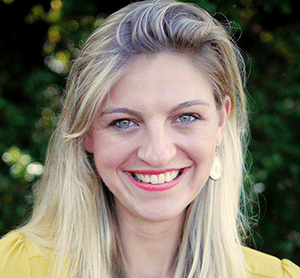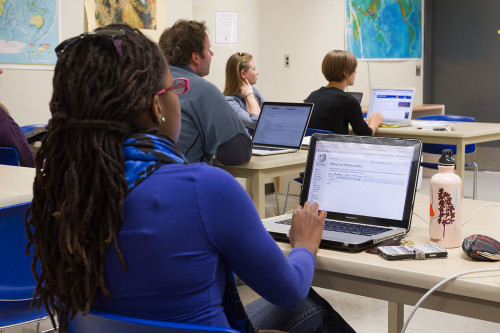
Our Classroom Program has produced high-quality content working with student editors through classroom assignments. Since student editors have been shown to add high-quality content to Wikipedia through class-based assignments, we were interested in seeing if we can replicate that model outside of the classroom. We wanted to know if students would edit in their free time and, if so, would they keep pace with the quality we’ve seen from the Classroom Program? In November 2014, we launched a pilot program to find out. We sought input from experts in the field, including Pete Forsyth of Wiki Strategies, as we designed our approach.
Throughout the course of the pilot we worked with six student groups:
- The Berkeley Water Group Idea Lab at the University of California, Berkeley (2 workshop sessions, 1 one-day field trip): 12 attendees total (Read more).
- The GeoClub at the University of Arizona (1 workshop session, 1 half-day field trip): 13 attendees total (Read more).
- The Art, Design, & Architecture Museum Club at the University of California, Santa Barbara (1 workshop session, 1 half-day field trip planned, but not executed): 11 attendees total (Read more).
- Lambda Pi Eta communication honor society at Portland State University (1 workshop session, no field trip): 2 attendees total
- The Hydrophiles at Oregon State University (1 workshop session, no field trip): 4 attendees total
- Pi Alpha Xi horticulture honor society at Oregon State University (1 workshop session, no field trip): 4 attendees total
Students in these clubs hosted Wiki Ed staff at one to two of their meetings and received training on how to contribute illustrations and text to Wikipedia articles. Two groups engaged in a group field trip and editing project. As you might have observed in the list above, student participation was significantly higher when editing workshops were paired with field trips, which is a key finding of our pilot.
Measuring enthusiasm

By the end of the pilot, students had edited 46 Wikipedia articles. While that’s lower than we’d expected, the quality of edits was quite high.
Again, field trips played a role in driving edits. It seems that involving a field trip, or at least an opportunity for active participation, will not only increase the number of attendees but also the students’ engagement level.
In a survey, 10 of the 17 student respondents claimed they had continued to edit articles. Our data shows that only five students kept editing – though students may have changed usernames or edited anonymously.
When asked what keeps them from editing, the majority of those students who stopped editing told us they were “too busy.” When asked what would stop them from making contributions in the future, the answer was more or less the same: students didn’t think they would have the time to contribute. (The full results of this survey is included in the report as appendix 2).
Conclusions
The student outreach pilot started with the goal of answering some key questions about student editing.
- Will students contribute high-quality content in their extracurricular time?
- Will their enthusiasm for the project match our own?
- How will their production compare to the Classroom Program?
We found that some students can and will make high-quality contributions when working as part of a student group outside of class hours, but that while some students seemed to embrace Wikipedia, the majority of students showed enthusiasm only when staff was around. After the workshops, the majority of student editors stopped editing. In general, a few students contributed really great content. The rest of the students only edited at the workshop and under staff’s direct supervision.
It seems that the best student edits come when students have incentives – with either a grade or a field trip. We think that involving honor societies and academic associations who have sanctioned Wikipedia editing for students and instructors as part of their community service requirements has the potential to lead to quality student contributions in the future. Our major learning from this term is that with an incentive (a grade, a field trip, a push from their national honor society, or a visit from a Wiki Ed staff member), students will contribute content in their spare time. But without these incentives, students are unlikely to contribute content in their extracurricular time.
The full report is available on Meta.
